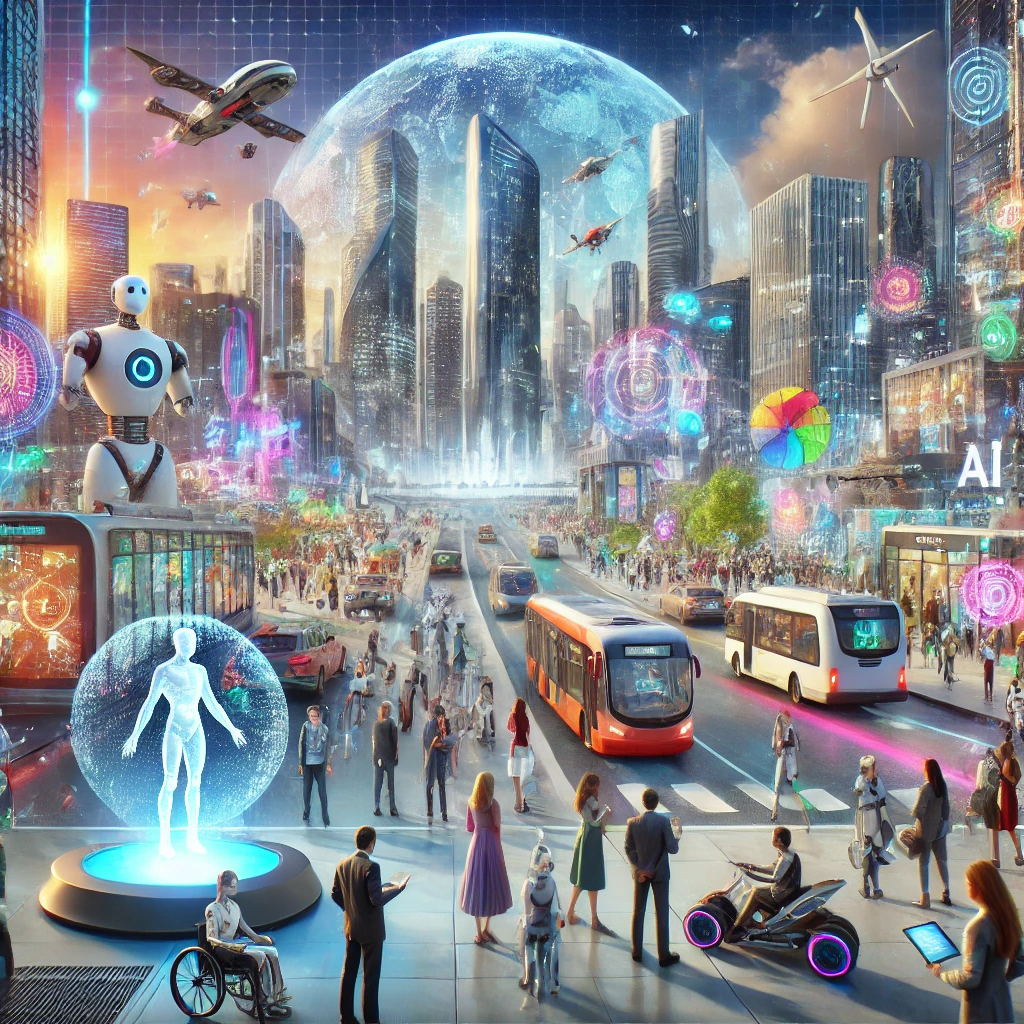Artificial Intelligence and Human Life: Future of Technology and Possible Scenarios

Artificial intelligence (AI) has been at the centre of scientific progress and technological innovation in recent years. Stanford University’s ‘AI Index’ report of 2023 reveals that artificial intelligence has been the subject of 40 per cent more research articles annually in the last decade and that this field is growing rapidly. This technology touches every aspect of human life, leading to major changes in social, economic and cultural structures. So, why is artificial intelligence so important and what awaits us in the future? In this article, how artificial intelligence affects our lives, its advantages and disadvantages will be discussed.
An Overview of Artificial Intelligence
What is Artificial Intelligence?
Artificial intelligence refers to the ability of machines to solve complex problems by imitating human thinking and decision-making abilities. AI consists of many sub fields such as machine learning (ML), deep learning and natural language processing (NLP). In addition, sub-branches of artificial intelligence include areas such as data analytics, autonomous systems and human-machine interaction.
Historical Development of Artificial Intelligence
The foundations of artificial intelligence are based on the work of Alan Turing in the 1950s, who questioned whether machines have the ability to think. With the emergence of expert systems in the 1980s, artificial intelligence began to be used in business processes. Today, thanks to deep learning techniques, AI has made great strides in medicine, engineering and art.
Social Impacts of Artificial Intelligence
Change in Education
AI is reshaping teaching and learning methods in the field of education. For example, according to a study conducted in 2021, AI-powered personalised learning systems increased students’ success rates by 30%. In addition, platforms such as ‘Coursera’ offer customised courses to millions of students thanks to AI-based recommendation engines. AI also allows students to develop more effective learning strategies by analysing their strengths and weaknesses. Some schools in China are using facial recognition technology to measure students’ attention levels and adapt their teaching methods accordingly.
Innovations in Health
In the medical field, artificial intelligence has made a big difference in the early diagnosis and treatment processes of diseases. For example, in a study conducted by Massachusetts General Hospital, it was stated that artificial intelligence-supported imaging systems can detect breast cancer with 94% accuracy. In addition, AI-supported surgical robots enable more precise interventions by reducing the error rate in surgeries. During the COVID-19 pandemic, artificial intelligence has accelerated vaccine development processes and has been used to predict patterns of virus spread.
Social Justice and Access Issues
However, issues of social equity in artificial intelligence applications also come to the fore. The bias of algorithms may cause some communities to be excluded from systems. For example, problems such as the misidentification of darker-skinned individuals in facial recognition technologies may deepen social inequalities.
Economic Impacts
New Business Areas and Opportunities
Artificial intelligence contributes to economies by creating new business areas thanks to automation. For example, according to a report by Mc Kinsey & Company, automation is expected to add $13 trillion to global economic output by 2030. In industries supported by AI, new professions have emerged in the fields of data science, artificial intelligence engineering and robotics. Language models such as Chat GPT offer innovations in areas such as customer service and content production.
Unemployment and Destruction of Professions
On the other hand, some traditional occupations are threatened by automation. For example, the replacement of workers on production lines by robots may lead to unemployment. A study by the University of Oxford shows that 47% of existing occupations are at risk of being lost due to automation in the next 20 years.
Cultural Impacts
Art and Creativity
AI-supported creativity helps artists to produce new works. For example, AI-powered platforms such as ‘Deep Art’ can transform any photograph into different artistic styles and offer new perspectives to artists. In addition, the painting ‘Edmond de Belamy’, which was sold at Christie’s auction and created by artificial intelligence, concretely demonstrates how AI pushes the boundaries in art. Google’s ‘Magenta’ project explores how artificial intelligence can be used in areas such as music composition and creative writing.
Ethical Questions
Artificial intelligence raises questions of cultural values and ethics. For example, the use of AI-powered autonomous weapons is heavily criticised from an ethical perspective. Likewise, the lack of human intervention in the decision-making processes of artificial intelligence algorithms can pose great risks.
Advantages and Disadvantages
Advantages
- Increased Productivity: AI provides much faster and more accurate solutions.
- Cost Savings: Automation helps companies reduce costs.
- Innovation: It offers the potential to develop new products and services.
- Health Advancement: Offers early diagnosis and person alised treatments.
Disadvantages
- Unemployment It may cause some professions to disappear completely.
- Privacy Issues: AI systems may raise concerns about the collection and processing of personal data.
- Ethical Issues: Reduced human control in decision-making processes may create risky situations.
Possible Future Scenarios
Positive Scenarios
- More Livable Cities: Improvement in areas such as traffic, energy consumption and security with smart city applications.
- Revolution in Health: Much earlier diagnosis and person alised treatment opportunities in medicine.
- Combating Climate Change: AI can develop more effective methods in solving environmental problems.
Negative Scenarios
- Cyber Security Risks: Increase in AI-supported cyber-attacks.
- Social Divide: Social imbalances may increase if equal access to the opportunities offered by AI is not provided.
- Ethical Problems: The ethical implications of the decisions of autonomous systems can be controversial.
Conclusion
Artificial intelligence has the potential to significantly transform human life. However, the social, economic and cultural impacts of this transformation should be carefully considered and ethical questions should not be ignored. In the future, a series of regulations and awareness-raising studies will be important to evaluate the opportunities offered by artificial intelligence to humanity and to minimise the risks.